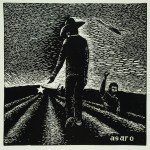Posts under tag: Indigenous culture
Public Lecture “Documenting the Iskonawa of the Amazon: Challenges to the Latin American Literary Canon”
Thursday, October 29th, 2015
3:30 p.m. Browsing Room, Knight Library.
Through interdisciplinary research and recent fieldwork, this talk will present an ongoing project that documents an endangered community: the Iskonawa of the Peruvian central Amazon forest. The Iskonawa oral tradition is full of knowledge about nature and survival strategies that speak volumes about the environment and the possibility of coexistence among humans and between humans and nature. However, like all indigenous societies in Latin America, the Isknonawa are threatened by deforestation, contamination, crime and drug trafficking. This case study also sheds light on canonic texts of the indigenista literary tradition and challenges some premises of postcolonial and decolonial theory.[embeddoc url=”https://las.uoregon.edu/files/2015/10/Poster-Mazzotti-UO-visit-2bd69jn.pdf” download=”all” viewer=”google”]
Bartolomé de las Casas Lecture in Latin American Studies
Professor Stefano Varese (Native American Studies, UC Davis) will deliver the 2014 Bartolomé de las Casas Lecture in Latin American Studies. His talk, entitled “THE RIGHT TO RESIST DEVELOPMENT: ETHNOCIDE AND ECOCIDE IN AMAZONIA,” will take place on WEDNESDAY, MAY 28, AT 2 PM, in the Ford Lecture Hall at Jordan Schnitzer Museum of Art.
STEFANO VARESE is Emeritus Professor in the Department of Native American Studies and Director of the Indigenous Research Center of the Americas at the University of California, Davis. He obtained his PhD at the Pontificia Universidad Católica del Perú and taught at the Universidad Nacional Mayor de San Marcos, in Lima. In the 1970s Varese worked for the Division of Native Communities of the Amazonia in Peru. Later, he moved to Oaxaca, Mexico, where he headed “Culturas populares,” a unit of the Secretary of Education devoted to the promotion of Indigenous development. He implemented a number of projects, from bilingual-bicultural education, to artisan production, and to novel forms of political organization. In the early 1990s he moved to Davis and became a member of the Department of Native American Studies while also continuing his involvement with Indigenous organizations, especially the Frente Indígena Oaxaqueño Binacional (FIOB). His scholarly work has focused on Indigenous community development and self-determination, human rights, transnational Indigenous migration and identity, and Indigenous epistemology. He was the recipient of the 2013 LASA/Oxfam America Martin Diskin Award. His publications include Witness to Sovereignty: Essays on the Indian Movement in Latin America (2006) and Salt in the Mountain: Campa Asháninka History and Resistance in the Peruvian Jungle (2004).
For further information please contact Carlos Aguirre at caguirre@uoregon.edu or 541-346-5905.
The Role of Public Art in the Oaxaca Rebellion of 2006
Wednesday, March 5 at 2 p.m.
Jordan Schnitzer Museum of Art, Ford Lecture Hall
 César Chávez Victoria, artist and member of the ASARO (Asamblea de Artistas Revolucionarios de Oaxaca/The Assembly of Revolutionary Artists of Oaxaca) collective, will discuss the founding of the group and its role in the 2006 Oaxaca Rebellion. This year marks the 8th anniversary of the collective’s commitment to engendering social change through art.
César Chávez Victoria, artist and member of the ASARO (Asamblea de Artistas Revolucionarios de Oaxaca/The Assembly of Revolutionary Artists of Oaxaca) collective, will discuss the founding of the group and its role in the 2006 Oaxaca Rebellion. This year marks the 8th anniversary of the collective’s commitment to engendering social change through art.
The contents of this public presentation were developed under a grant from the Undergraduate International Studies and Foreign Language (UISFL) Program, International Studies Division, U.S. Department of Education. However, those contents do not necessarily represent the policy of the Department of Education, and you should not assume endorsement by the Federal Government. Additional support was provided by the College of Arts and the Jordan Schnitzer Museum of Art.